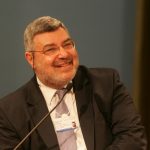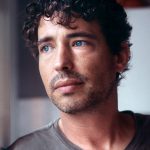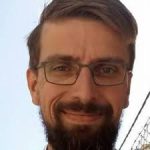On Wednesday, June 7, Palestinian-American journalist and political scientist Rami Khouri will hold a lecture on fifty years of occupation of Palestine. Subsequently, he will be interviewed by Jan Keulen, Director of The Rights Forum.
– photographer Dirk Jan Visser presents the web documentary “The Holy Road” (co author Derk Walters correspondent NRC) he shows 2 of the 7 videos.(explanation see below)
Start 08.00 PM (hall open 07.30) access free of charge
Place: Offerhauszaal, Academy building, broerplein 5, Groningen
Organization Foundation Groningen-jabalya in association with The Rights Forum
____________________________________________________________
Explanation
Since 1967 Israel has established 126 settlements in the West Bank. In addition, there are dozens more settlement outposts. These settlements were established on vast tracts of land taken from the Palestinians, in breach of international humanitarian law. In 1967 no Israeli was living in the West Bank or East Jerusalem, now there are more than 630,000 settlers.
The very existence of the settlements violates Palestinian human rights, including the right to property, equality, a decent standard of living and freedom of movement. Israel’s dramatic alteration of the West Bank map has precluded realization of Palestinians’ right to self-determination in a viable Palestinian state.
The world community, as represented by the UN, considers the Israeli settlements as illegal. No country in the world recognizes the Israeli annexation of East Jerusalem. Despite this the world seems to condone 50 years of occupation, dispossession and discrimination. Why did the peace process go nowhere? Palestinian American journalist and political scientist Rami Khouri tries to answer those questions.
 Rami Khouri (1948) is known for his frequent appearances on CNN, Al Jazeera English and writing for leading publications, including the Financial Times, the Boston Globe and the Washington Post. Khouri is director of the Issam Fares Institute for Public Policy and International Affairs (IFI) at the American University of Beirut. He was the 2004 winner of the Eliav-Sartawi Awards for Middle East Journalism and co-recipient of the Pax Christi International Peace Award for his efforts to bring peace and reconciliation to the Middle East.
Rami Khouri (1948) is known for his frequent appearances on CNN, Al Jazeera English and writing for leading publications, including the Financial Times, the Boston Globe and the Washington Post. Khouri is director of the Issam Fares Institute for Public Policy and International Affairs (IFI) at the American University of Beirut. He was the 2004 winner of the Eliav-Sartawi Awards for Middle East Journalism and co-recipient of the Pax Christi International Peace Award for his efforts to bring peace and reconciliation to the Middle East.
About documentary The holy road
‘The Holy Road’ takes you on a road trip through the West Bank on Route 60. This road is also called the ‘holiest road in the world’ because of the many religious highlights for Christians, Muslims and Jews. Others see it as the “occupier road” connecting the illegal settlements. Driving over the road, you are constantly confronted with the grid of control: the partition wall, the many checkpoints and waiting towers, and the various areas that you may or may not like depending on your identity card.
Along the way from south to north, the viewer in The Holy Road adopts the contested route 60. Using seven multimedia stories, Visser and Walters give insight into the impact of occupation on the daily lives of people who Live here. From the Jewish settlers in Kiryat Arba, ‘kiloknaller’ Rami, who receives both Israelis and Palestinians in his shop, to the Palestinian protestor Tito.

Dirk Jan Visser

Derk Walters
Dirk-Jan Visser and Derk Walters both lived temporarily in Jerusalem. Visser as freelance photographer and Walters as correspondent for dutch newspaper NRC. Derk Walters: “For a long time, I was frustrated that the occupation in individual newspaper articles is so difficult to describe, partly because Israel has consciously made an impenetrable, bureaucratic situation. With this interactive production, we want to experience people who occupy the occupation, both for Palestinians and for Jewish settlers. ”
The web documentary is available at www.theholyroad.org. The Holy Road is a production of Prospector in collaboration with Dirk-Jan Visser and Derk Walters.

